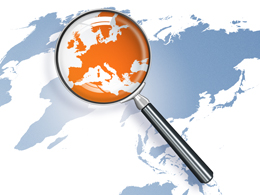 Today's big financial and economic news is that the European banking system is in better condition than many had thought.
Today's big financial and economic news is that the European banking system is in better condition than many had thought.
An extensive review by the European Central Bank and the European Banking Authority was completed on Sunday. It concluded that, of the 130 large banks reviewed, only 25 were below the standards at the end of 2013; of those, 12 have since raised enough capital to get out of the danger zone.
That leaves 13 banks still in trouble. Collectively, the amount they need to raise is about $12 billion—not nothing, but considerably less than most observers were expecting.
Here's why it matters to us
Greater confidence could spark growth. For European growth to start up again—which would benefit everyone, including the U.S.—the banks need to start lending. With the financial system crippled by systemic distrust, much as the U.S. banking system was in the aftermath of 2008, lending is also crippled. By verifying that most banks are reasonably solid financially, the ECB has opened the door for banks to trust each other, and for consumers and business to trust the banks again.
A systemic crisis looks less likely. Second, even if the European economy remains in recession, the most plausible transmission mechanism that would create problems for the U.S. economy is a systemic financial crisis, where banks fail and draw in U.S. institutions. This is a big part of what made 2008 so bad. With the financial health of the European banks improving, that kind of systemic crisis becomes much less likely.
An important step in the right direction
As you might expect, the situation isn’t all cut and dried. Some analysts are already arguing that the tests weren’t tough enough. Moreover, another 14 of the banks tested barely passed. Finally, even for the banks that did pass, and pass easily, the review identified a number of questionable practices—including €136 billion in bad loans the banks had not reported, as well as assets overvalued by €48 billion. Clearly, the banks have been playing games with their accounting, and the review identified many of them.
This transparency, however, is the necessary first step for a real recovery. With information about the banks’ financial health now out in public, they will be forced to address their problems rather than continue to hide them. You can see this in the relatively rapid recovery of the U.S. financial system—and the opposite in the continuing morass of the Japanese banking system, where banks were never forced to face reality.
Europe has been more like Japan, and this review at least raises the possibility of an eventual U.S.-style recovery. While certainly not the beginning of the end of the European economic crisis, it may quite possibly be the end of the beginning.


 Print
Print

